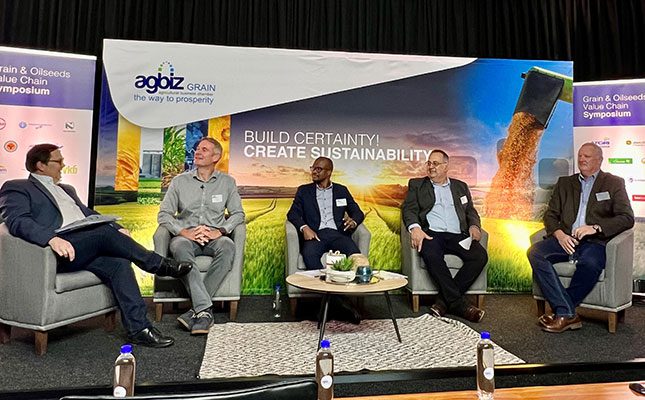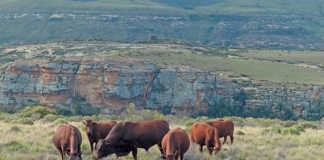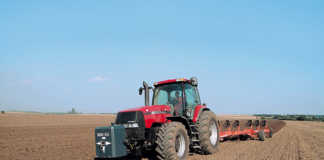
Theo Vorster, co-founder and CEO of Galileo Capital, moderated the panel consisting of Prof Ferdinand Meyer, director of the Bureau for Food and Agriculture Policy (BFAP); Vuyo Mpumza, commodity derivatives manager at the JSE; Tom Meintjes, vice-chairperson of Agbiz Grain and managing director GWK; and Francois Strydom, CEO at Senwes.
“We have a very good grain market system in South Africa. With these discussions, we do not want to create the impression that we are on the brink of a crisis. We wish to create awareness that the market has changed and that those changes necessitate certain adaptations in business models and focus,” Meintjes pointed out.
“Grain production increased over the past 10 years, and we need to take that into consideration when we look ahead into the future. There are certain pressure points in the grain system that need attention and those need to be discussed. It is imperative that we look at costs and income streams to unlock future readiness for changes in the market. We also need changes to facilitate growth in this sector to keep up with demand and handle traceability and segregation,” he stressed.
Meyer added that although the food value system, specifically the grain value chain, was working well, small adjustments at various operational levels would always be needed to ensure profitability and sustainability.
“We have limited storage capacity and many of the silos are old. We have been operating in the open market now for 25 years, and in that time, production increased while production areas also shifted. We sit with old silos on the one hand, and on the other, some of these are not ideally placed to serve our farmers,” Meyer said.
Some of the aspects that need to be addressed include: Location of silos; taking production areas and export patterns into consideration; grain quality and segregation capacity; future investment in the industry; sustainable storage cost structures.
Addressing storage cost issues, Mpumza said: “To ensure a market space that functions optimally, the JSE needs a single, standardised pricing system.”
Regarding profitability, Strydom stressed that the rules of capital needed to be employed. According to him, production moved away from Randfontein, yet it was still used as the benchmark for grain prices. “Farmers are not paid the fare share in some areas,” he said.
Strydom also pointed out that investment in the storage sector calls for thinking out of the box. “Currently, the return on investment on silo structures doesn’t encourage reinvestment, essentially shortening the life span of these national assets. Some companies have already adjusted, and certain gaps are filled. At Senwes, we looked at our systems and business models and made some adjustments. We now accept grain at a higher moisture level and also increased the intake speed at silos.”
He further said that reinvesting and maintenance of silos were two areas that could make a huge difference. “With regard to storage, the industry needs to look down the value chain at aspects such as segregation, grading and moisture levels. Although this means that some bins are not filled to capacity, it could unlock value down the line.”
Strydom further pointed out that bigger issues also came into play and that these needed to be addressed on a political level. These include: Infrastructure – roads, rail and ports; logistics; and safety and security with specific reference to law abidance and the combating of criminal elements.
“If these aspects are not sorted out, companies will divest from the country,” Strydom warned.












